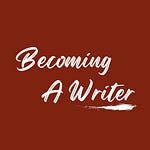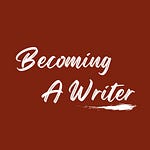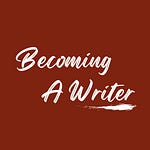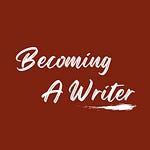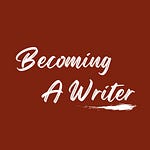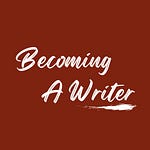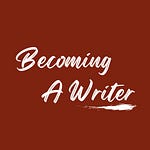Show Notes -
Episode Summary: In this episode, I delve into the pervasive feeling of guilt that many writers and creatives experience when taking breaks.
Drawing from personal experiences and insights, I explore the reasons behind this guilt, such as the pressure to constantly produce and the unhealthy comparisons with others.
Inspired by conversations with a close friend and the concept of Slow Productivity by Cal Newport, I discuss practical solutions to incorporate rest and fun into your creative process.
This episode emphasizes the importance of balancing productivity with self-care to prevent burnout and enhance creativity.
Key Takeaways:
Understanding Guilt in Creativity: Explore the two main sources of guilt—waiting to rest until work is done and the feeling of "not doing enough" due to comparisons with others.
The Right Attitude: Learn why adopting the right mindset is crucial for overcoming feelings of inadequacy and burnout.
Daring to Write: Discover how writing is an act of daring, akin to physically daring activities, requiring emotional, mental, physical, and spiritual investment.
Productivity vs. Pseudo-Productivity: Differentiate between true productivity and activities that give the illusion of being productive without actual progress.
Practical Solutions:
Remove or schedule pseudo-productive tasks after primary writing.
Reduce the number of commitments to avoid overloading your schedule.
Be realistic about your time and energy, recognizing that writing often happens in small pockets of time.
Engage in high-quality hobbies to rejuvenate your creative spirit.
Prioritize quality sleep to maintain overall well-being.
Plan enjoyable activities to look forward to, enhancing your sense of aliveness.
Celebrate your progress to foster a sense of accomplishment and gratitude.
Resources Mentioned:
Transcript -
Hello, my writer friends! Rubina here. For our twenty-eighth conversation, we are going to talk about why we shouldn't feel guilty for taking breaks.
But that is exactly what I do—I feel guilty. It seems I have forgotten life outside of work and don't know how to have fun anymore.
I see two explanations for this feeling of guilt -
One, I wait to get done with my work to rest or have fun. But since there is no end to work, I keep going without any breaks. Which, as you could imagine, would lead to burnout, frustration and heartbreak.
Second is the dreaded feeling of "not doing enough."
I have pushed myself into this self-imposed prison, and I am working on breaking free. It comes from the unconscious comparison I make between my profession and that of my friends and others.
For some reason, I get the impression that they are flying through their professional success riding a unicorn while I am stuck on the ground painstakingly moving while riding a donkey.
That's what my ego-mind thinks. My aware mind knows that's not the case. I know so because almost every weekend, I spend about an hour listening to my long-distance best friend complain about their job and bosses.
Since the ego mind is a loudmouth, that's the voice I hear the most. It gives me this feeling that everyone is ahead of me. Therefore, to make up, I work extra hard and long hours, and any free time I have left over goes into worrying about the work.
But you know, this is a funny situation. I feel I am not doing enough, but at the same time, I am overwhelmed almost all the time and already have the next tasks ready on the tray. So clearly, I am doing too much.
This got me wondering - what was I doing wrong?
Was I putting too much pressure on myself and expecting too much?
Maybe I didn't know how to tackle my workload.
I may have unconsciously trained myself to believe that I must give output like a machine.
Or maybe I wasn't implementing the right attitude for my line of work?
It's the last one. Understanding this one would automatically solve the other three.
The Attitude
Back in June, I shared my insecurities and uncertainties about my writing career with my best friend. I don't usually share such thoughts with her, but I was in a phase of feeling low and stagnant and needed a safe place to vent out. Her response made me tear up.
She made me understand that success is slow, especially in the beginning, in a field like mine. That's why very few people choose this line and stick to it. "Daring" is required for such an endeavour.
Daring was her choice of word to describe what I was doing. Even though sometimes writing feels scary, we don't usually see it as an act of daring.
Skydiving is daring. Free solo climbing is daring. Formula 1 racing is daring. Boxing and wrestling are daring.
But Writing? Daring? We never think of writing in that way, but if we truly look at it, it is an act of dare. We do take the leap of faith (metaphorically speaking) with no clue if we'll survive the jump.
Now, by definition then, writing will be exhaustive. It can't be a daring act if you are not putting in beyond measure effort before, during and after your act. Emotionally, you are exhausted because you are invested in the creation of your art and want it to be the best it can be. Mentally, it is exhausting because you are creating something out of nowhere, and that eats up your brain power. Physically, too, it may look to others that we're sitting all day, but only we know the repercussions of hunched over backs, bruised fingertips, dry, red eyes and stiff necks. And since you are acting as a medium for creative ideas to be born through you, the energy surge that passes through you will drain you spiritually as well.
This then makes it necessary for us to rest and recuperate our emotional, mental, physical, and spiritual batteries, as well as our creative batteries.
Taking a break or doing something fun is not a reward for a good writing session or permission to indulge when we reach a writing milestone. It is part of the writing process.
We don't write so that we can rest and have fun. We rest and have fun so that we can write.
The Solution
The obvious next question, then, is how writers can incorporate rest and fun into their writing process.
The first step is to understand the difference between productivity and pseudo-productivity.
I recently read Slow Productivity by Cal Newport. It discussed pseudo-productivity, in which we use visible activity to prove that we are being productive.
In office terms, it's spending most of the allotted time on meetings and emails about the project instead of working on them. In writing terms, it's spending time on planning and researching instead of writing, on creating content around our art instead of working on our art, and on stressing about branding, marketing, and selling our books before even writing the book.
You know you are being pseudo-productive when, at the end of the day, you realise you did nothing productive. That is, you spent the entire time around writing but didn't actually do any writing.
It is crucial we understand where we are being proactive with our writing and where we are unnecessarily draining our energy.
The next obvious step is to have fewer things on your plate.
First, remove the pseudo-productive activities from your day as much as you can. Or schedule them to be after you are done with your primary job of writing. Then make sure you don't jam-pack every minute of your day with projects, tasks and errands. Give yourself some breathing room, and keep some space for surprise errands that are bound to come up throughout the day.
Also be honest with your time and energy expectations.
For 99% of us, Writing is not the main activity of our day. Our writing gets done in the nooks and crannies and crevices of whatever is left from the day after we have taken care of our day jobs, family, responsibilities, personal errands and other miscellaneous activities.
So, to expect a chunk of 2-3 hours of high-quality time and energy for your writing with low disturbances and distractions EVERY SINGLE DAY is a dream that's bound to break.
Of course, we want that blissful time slot where we can write to our hearts' content. And yes, we should strive for it. But also know that that's not going to happen every day.
The best thing we can do is make the most of the time and energy we do have for our writing while also continuing to figure out how to improve this situation.
Indulging in high-quality hobbies is also a good idea for rest and rejuvenation of our writer soul.
Reading books, watching movies or shows, going out in nature or to your favourite place, playing with a pet or kid, moving your body in the way you enjoy the most, spending time with the people who energise you, napping, baking, gardening.
Any activity that leaves you feeling better, fresher, and more excited is a high-quality hobby. Indulging in such hobbies makes you a happier human and, therefore, a creatively energised writer.
Please note—scrolling on social media is NOT a high-quality hobby. I'm sorry, but it is not. Doing that will make your brain more fried than relaxed.
Sleep is also very important.
7-9 hours of quality sleep is the ultimate rest you can give yourself. It's like plugging yourself in to charge all night so you can function well the next day.
Also, plan something fun to look forward to.
If a long weekend is coming up soon, plan a trip to a nearby city you always wanted to visit.
Or have a weekly get-together planned with your best friend at the cafe.
Or book the tickets for the movie that's coming out this week that you're excited about.
Or simply plan a home-alone self-care day tomorrow.
Planning such activities may seem counterproductive and insignificant—so trivial that we will postpone them and instead keep working on our projects. But it's these activities that make us feel alive and human.
Remember how you had a school trip or picnic to look forward to, and it would get you all excited throughout the whole week? We want to re-create that feeling of energy and aliveness.
You must also appreciate how far you've come in your writing journey.
It doesn't matter where you are on this lifelong creative journey; celebrate it. This feeling of gratefulness will bring you closer to living your writing dreams.
Conclusion
The point is that we need to realise that we are not machines. We can't keep working and turning and churning out words until we break down. Even machines need servicing to ensure that they work well and at their optimum level.
We are humans who need to let go of the idea of carrying hustling and burnout as badges of honour. As proof that we are doing something worthwhile.
It's okay to take a break and do something fun. Doing so doesn't make you less productive or less successful. Instead, it will enrich your life and your writing journey.
When I get too caught up in the hustle, I remind myself that when I die, nobody will think of me and say proudly, "Rubina was such a productive writer." Instead, I want them to think of me as a writer whose words made an impact.
And I am pretty sure we can do that while getting some rest and having some fun.
What are your thoughts on this? Is taking breaks a part of your writing process? Or is working our hardest the only option we have? And what's your choice of break? Feel free to share your thoughts and tips in the comment section on Substack and YouTube.
Well, that's it for today. Next time we meet, we'll talk about why creating content might be keeping you from being a writer.
Until then, keep writing, my friend.
Send in your suggestions and questions here.
📚 My non-fiction book for writers -
Soul Writer vs. Social Writer - Find Out Which One Are You?, Why Is It Important, and Finding Your Sweet Spot.
Amazon US | Amazon UK | Amazon India
🏡 My homes on the internet -
Spotify | Apple Podcast | Amazon Music
YouTube | YouTube Music | Substack (podcast)
A Rubina’s Bojra Production
Directed By: Rubina Gauri Gomes
Produced By: Rubina Gauri Gomes, Books She Has Read, And Life Lessons She Has Learnt
Written By: Rubina Gauri Gomes
Host & Voice Talent: Rubina Gauri Gomes
Music by: Happy Lazy Loop by Serge Quadrado (At Adobe Stock)
Audio-Visual Edited By: Rubina Gauri Gomes
Marketed By: Rubina Gauri Gomes
Fueled By: Coffee ☕
Made With Love, For Fellow Writers And Creatives.🤍











